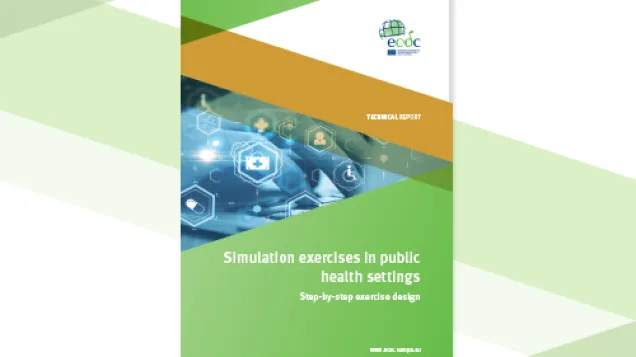Strengthening health resilience through simulation exercises and after-action reviews

The event marked the first such workshop hosted by ECDC under the framework of the Health Resilience in the Eastern Partnership programme. It brought together senior professionals from ministries of health, public health institutes, and crisis management bodies to foster cross-country exchange and strengthen national and regional capabilities in public health emergency preparedness.
In, addition, the event initiated discussions on establishing a community of practice for public health emergency preparedness. Resources from both ECDC and World Health Organization (WHO) were presented to support future implementation at the national level.
Through plenary presentations and hands-on group work facilitated by ECDC and WHO experts, participants discussed a range of approaches for designing and developing SimExes and AARs methodologies.
The workshop reinforced the commitment of participating countries to embed continuous learning, cooperation, and resilience into their preparedness systems, constituting a valuable contribution to regional efforts to safeguard health security in the Eastern Partnership region.
Simulation exercises and after-action reviews
Simulation exercises (SimExes) and after-action reviews (AARs) are essential for strengthening public health emergency preparedness. SimExes allow countries to test plans, coordination, and decision-making processes in realistic scenarios, helping to identify gaps and improve response capacity.
AARs support structured reflection after real events and responses have taken place, highlighting best practice and areas and strategies for improvement.
Together, these tools promote continuous monitoring and evaluation, ensuring public health systems are more resilient, better prepared to respond to future threats and crisis.
Background
The Programme Health Resilience in the Eastern Partnership is an initiative of the European Union proposed to Armenia, Azerbaijan, Georgia, Moldova, and Ukraine. It aims to sustain and deepen the relationship between the European Union and its Eastern neighbours, while promoting shared values and supporting resilience across various sectors, including public health.
Share this page


